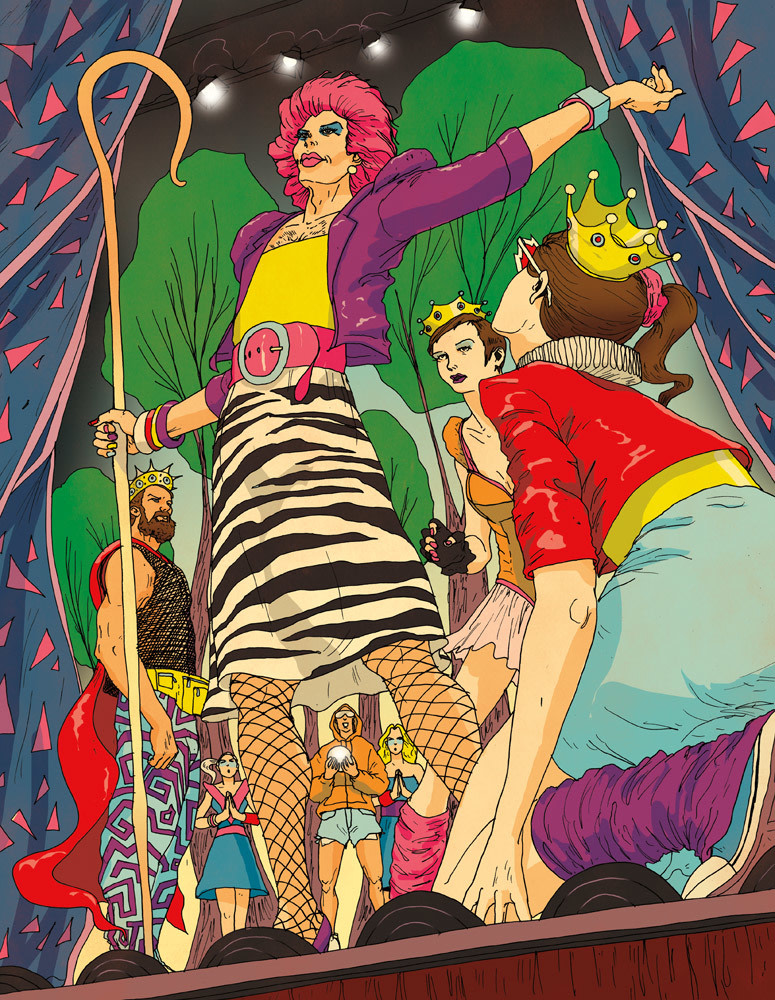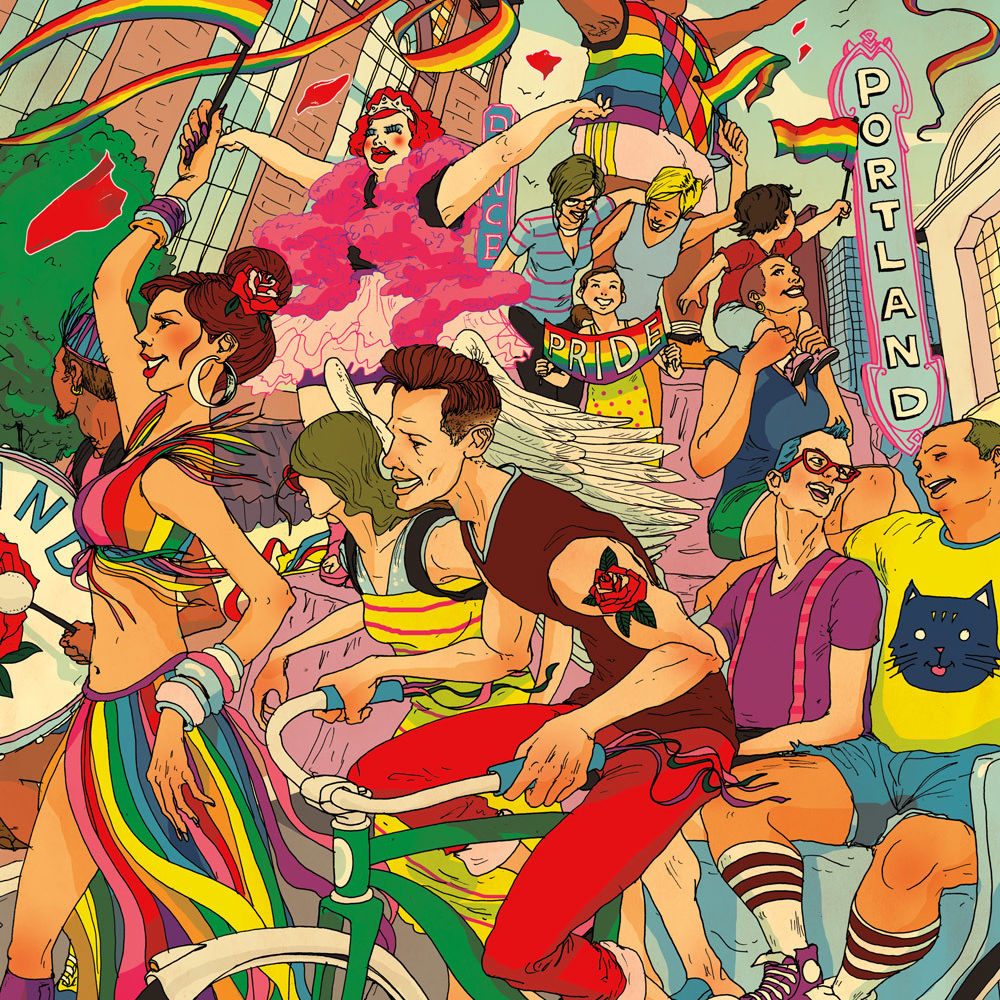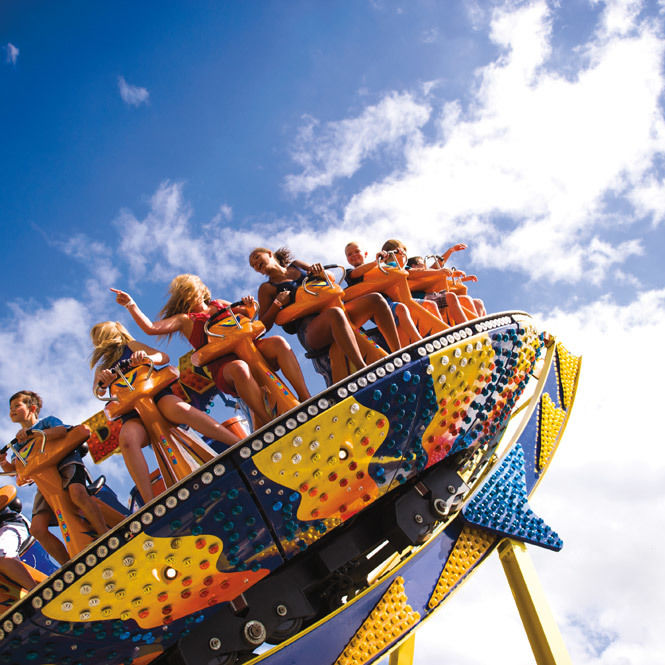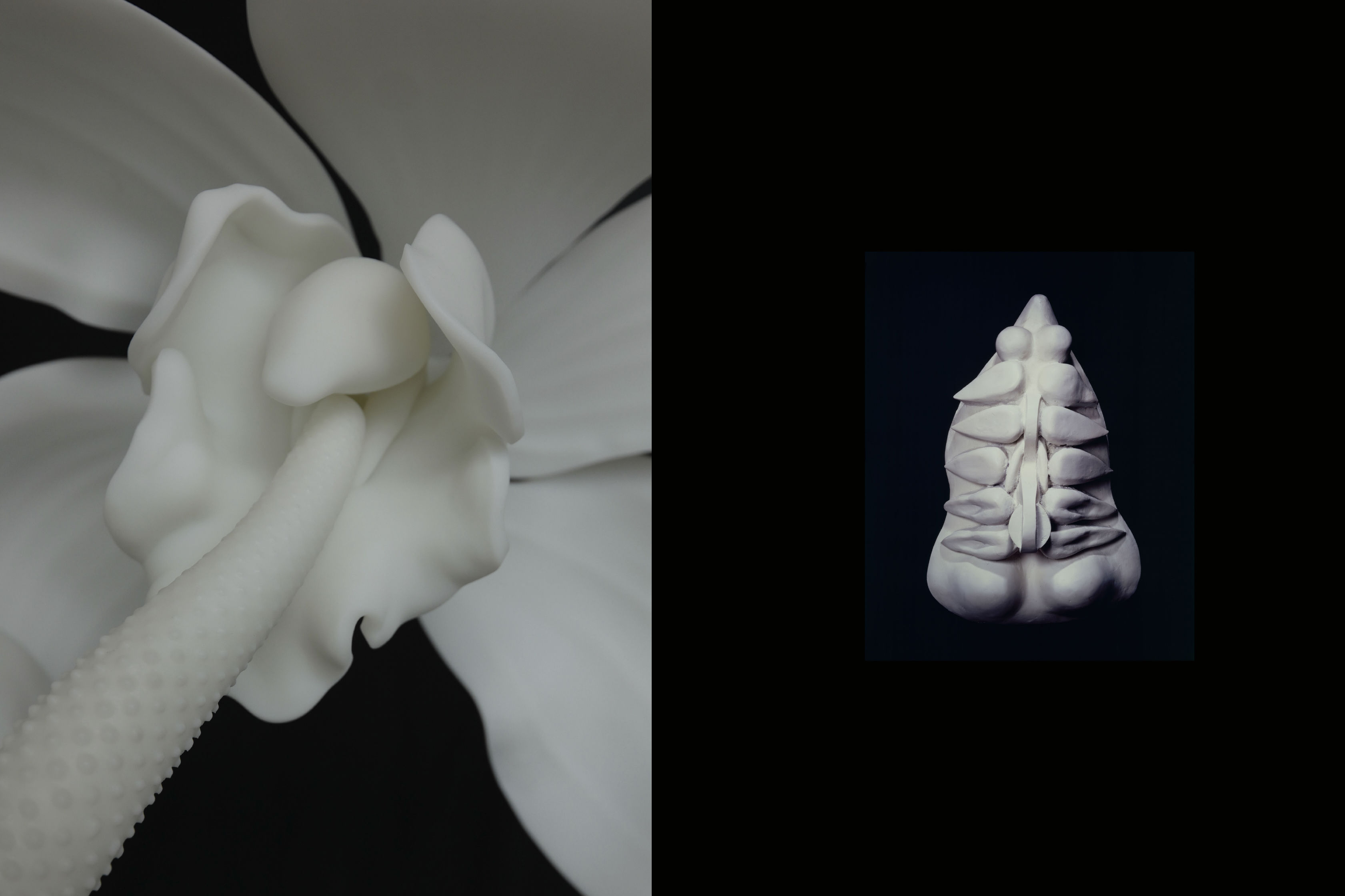Oregon Shakespeare Festival's New Groove

Image: Michael Byers
“See the people walking down the street
Fall in line just watching all their feet
They don’t know where they want to go
But they’re walking in time....”
No, it’s not Shakespeare, but the saucy new wave bounce of “We Got the Beat” nonetheless rocks into the Northwest’s fortress of iambic pentameter this summer. In the quaint hamlet of Ashland, where we lay our scene, the playwright Jeff Whitty mixes the Go-Go’s “canon” with a tale of royal prophecies, star-crossed lovers, and mistaken identities lifted from The Countess of Pembroke’s Arcadia, a sprawling 16th-century prose epic by Sir Philip Sidney. The Coos Bay–born Whitty, who snagged a Tony for the racy puppet musical Avenue Q, calls his genre- and gender-bending imaginative outing Head Over Heels. (Needless to say, high heels abound.)
“This show is so difficult,” says director Ed Sylvanus Iskandar. “People who can act in heightened text, sing in a rock idiom, and dance—that Venn diagram is tiny.”
But vaulting ambition reigns supreme at Ashland’s Oregon Shakespeare Festival. Though the 80-year-old attraction is best known for lavish productions of the Bard and other classics, in recent years the company has become a national instigator of bold contemporary drama. OSF produced 29 world premieres over the past decade; many have gone on to national acclaim, from last year’s Tony-winning production of All the Way on Broadway to The White Snake at San Diego’s Old Globe this spring. This season, OSF debuts three diverse works: Head Over Heels; Sweat, Pulitzer winner Lynn Nottage’s tale of 20th-century industrial decline; and an adaptation of Sarah Waters’s Victorian thriller Fingersmith by Friends and This American Life vet Alexa Junge.
Many theater companies commission new plays. Most are never seen again after the curtain falls on their debut run. Only a handful of troupes consistently develop shows that make it to Broadway or other marquee showcases, then enter regular circulation.
“What’s different about places like Berkeley Rep and OSF is a pretty significant investment in doing new work,” says Tony Taccone, who steers Berkeley Repertory Theatre and wrote Ghost Light for OSF. “It’s a way to create a profound authorial voice inside your organization.”
After becoming OSF’s artistic director in 2007, Bill Rauch accelerated and amplified the company’s existing efforts to create and debut fresh work. Most ambitiously, Rauch launched “American Revolutions: The United States History Cycle,” an audacious project to commission 37 plays about political and social change, taking as a cue (and tally) Shakespeare’s 37 dramatic works. With 24 scripts already written and seven produced—including Ghost Light, the Lyndon Johnson bio-play All the Way, and this year’s Sweat—the cycle has become “one of the most inventive and ambitious commissioning programs in the history of the American theater,” says Yale Repertory Theatre artistic director James Bundy. But OSF also debuts a significant number of plays from outside the American Revolutions series—musicals like Head Over Heels and adaptations like Fingersmith, for example.
“OSF is a very writer-centric organization,” says Robert Schenkkan, author of All the Way, which premiered at OSF, went to Broadway, and is now being adapted into an HBO movie by Steven Spielberg starring Breaking Bad’s Bryan Cranston. “You’d think, ‘Shakespeare festival—contemporary plays?’ But at this point they’re probably the largest commissioning agent of contemporary work in the country.”
“This is not a musical,” said Jeff Whitty as he introduced the first workshop reading of Head Over Heels last November. “This is an episode of mass inclusion disguised as a musical.”
This outlook explains a lot about that day: why the cast’s Fool offered me a pair of knee pads, so I could feel solidarity with the actors, who all wore them; why the cast wheeled out a fajita bar during intermission; why they then broke into a spontaneous round of choreographed songs totally unrelated to the show; why half the audience was crying by the final scene, despite having laughed through the rest.
Arcadia, at least in Whitty’s version, tells the story of a king who, after a prophecy that his daughters will choose lovers against his will and that someone else will claim his throne, takes his entire court on an extended vacation (or, per the Go-Go’s, “Vacation”). At heart, it’s a vehicle for Whitty’s life philosophy.
“Head Over Heels is about play,” he told me after the reading. That night, the tall, slimly muscular 43-year-old wore playfulness on his literal sleeves: tailored camo fatigues with camo suspenders, a flamboyant purple print shirt, a clashing purple print tie, and a queen’s ransom in jewelry (though what kind of queen is debatable). Also, a braided mohawk of purple hair extensions. When this singular style elicits homophobic slurs on the street, whether in Ashland or LA, he usually smiles and asks a question, like, “How would you like me to respond?”
“Jeff has a brilliant sense of humor, but always in the service of a larger theme,” says Rauch, who first met Whitty while directing the world premiere of the playwright’s The Further Adventures of Hedda Gabler in 2006 at South Coast Repertory. “When he brought me the possibility of his new musical with a score from the catalog of the Go-Go’s, I was so excited.”
With his résumé, access to the Go-Go’s music, and the interest of Broadway producers, Whitty could have worked with just about anyone in American theater. (Indeed, his other current projects include collaborations with Elton John and Tyra Banks.) But he chose OSF for its close-knit, nonprofit resident company.
“OSF is a family—there’s nothing else like it in the United States,” says Whitty. This family happens to include a dramaturge to help straighten out the thee’s and thou’s of Elizabethan language, a full crew of designers, and about 100 professional actors. “It’s the only place I can play and play, and then there’s a show.”
Last November, instead of simply running through their lines, the actors embarked on something like a full performance, complete with blocking and choreography. In substance, musicals using preexisting songs often feel like taffy gumming the hits together. (Sorry, Mamma Mia.) Not so Head Over Heels. The Go-Go’s songs, upbeat and instantly recognizable as they are, embellish the story’s Elizabethan themes and Whitty’s frolicsome pentameter. An adulterous tryst interweaves lyrics from “I Get Weak”—“With a kiss you can strip me defenseless”—with dialogue: “Now let us doff our vestments and conjoin!”
For Rauch, OSF’s full-time creative team makes this adventure possible. “Shakespeare’s plays were developed in company settings,” he explains. “Acting companies of any large scale don’t exist much anymore. So the fact that we have a resident company to inspire the work of great writers—I feel we have a responsibility.”
Over 80 years, this Shakespeare festival in a small pioneer town has pushed itself to the aesthetic forefront of American theater, building a permanent hive of actors, directors, designers, and technicians. It’s already the state’s most unlikely national arts beacon. So why not put the Bard’s players in some fierce heels for a little play?











